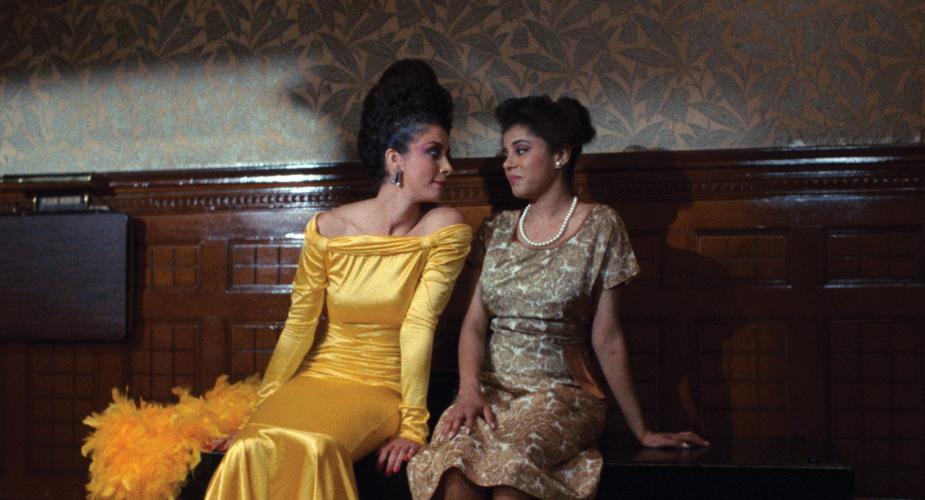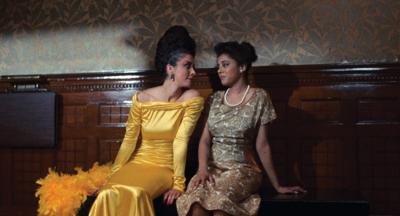The results of the 2022 Sight and Sound Greatest Films of All Time critics’ poll were released on Dec. 1, marking the first time in the poll’s 70-year history that a film directed by a woman appeared in the top 10. Not just in the top 10, in fact — Chantal Akerman’s Jeanne Dielman, 23 quai du Commerce, 1080 Bruxelles took first place. It set off tiny tornadoes of conversation across the internet and in the lobbies of our movie theaters. Had the woke mob finally gotten to the British Film Institute? Who wants to watch a woman peel potatoes for 201 minutes? Screenwriter Paul Schrader took to Facebook to voice that the result was due to an act of “politically correct rejiggering.”
One Nashvillian was preoccupied by other questions. “While I love and celebrate so many of the movies that are on that list,” says Belcourt staffer Sheronica Hayes, “only two of them have a Black woman as the protagonist or the lead of the story. Literally 2 percent of the world’s top 100 movies center Black women.”

Daughters of the Dust
With Beloved: A Spotlight Series on Black Female Directors, Hayes hopes to invite moviegoers to engage with films that they may not have on their own top 100 lists. The series is the first of its kind at the almost 100-year-old theater. Hayes takes her title from the Toni Morrison novel; she chose the words of the subtitle just as carefully. “The reason that the ‘spotlight’ is important both metaphorically and literally is because it focuses the viewpoint,” says Hayes. “I don’t think that people have seen these movies and dislike them. I think that a lot of people just don’t know that they exist, so there’s no real celebration for them. It’s important to shine a spotlight so that people can refocus their attention on these movies.”
Hayes cast a wide net in choosing the six films in the series. Recognizing that Black womanhood is not monolithic, she wanted to include a variety of experiences and identities. Her picks will appeal to a broad swath of moviegoers. The series starts with 2000’s Love & Basketball (Feb. 14), the first film by The Woman King director Gina Prince-Bythewood. Starring Sanaa Latha and Omar Epps, Love & Basketball is a tender drama about winning and losing on the court and in love. The film will double as an entry in the theater’s Pizza and a Movie series, in which the Belcourt partners with local pizzeria Slim & Husky’s. Beloved also features Julie Dash’s iconic Daughters of the Dust (Feb. 18-19), a lyrical film set in 1902 about a family who’s lived off the coast of Georgia for centuries and now considers leaving the island for the mainland. Dash explores the varying perspectives of the women in the family as they wrestle with the significance of leaving their home. It’s a gorgeous, gauzy and essential entry in American cinema.

The Watermelon Woman
Melina Matsoukas’ 2019 Queen & Slim (Feb. 21) is the most topical entry. It stars Jodie Turner Smith and Daniel Kaluuya as a couple whose first date is stalled by a traffic stop, and then keeps on going while the characters run from the law. Kasi Lemmons’ 1997 Eve’s Bayou (March 4-5) is a Southern Gothic family drama with Samuel L. Jackson, Jurnee Smollett and a perfect Debbi Morgan. Both of these films hit satisfying cinematic tropes and are packed with powerful performances. Hayes also chose two lesser-known but brilliant films: Ayoka Chenzira’s 1994 Alma’s Rainbow (Feb. 25-26) and Cheryl Dunye’s 1996 The Watermelon Woman (Feb. 28). Alma’s Rainbow is a Brooklyn-set coming-of-age story about an artistic teenager, her free-spirited aunt and her straight-laced mother who runs a beauty salon out of their home.
“It’s just fun, but it also handles big ideas,” says Hayes, “in a way that’s incredibly digestible for both teenage girls and women.” Using a mishmash of documentary styles, The Watermelon Woman blurs the line between documentary and drama. Cheryl Dunye stars as a queer video-store clerk (also named Cheryl Dunye) who is researching a 1930s actress credited only as “The Watermelon Woman” in films. “Cheryl is just so charming and sexy and flirty,” says Hayes, “and there’s this mysterious Watermelon Woman, and it’s such an invitation to think about the earliest appearances of Black women in film.”
Hayes says Beloved is for everybody. “I would love, love, love to just have more attendance and Black people at the Belcourt,” she says. “A part of our responsibility as an institution is to have programming that makes Black people want to come. … It’s also important to me that white audiences and non-Black audiences in general have an appreciation for Black films. A lot of the Belcourt’s funding is from the public, so the public has to have an appreciation for what we do. And that means that they have to see the value in showing Black stories.
“I want to simultaneously make a safe space for Black people to come view Black cinema, but also encourage non-Black audiences to engage with it in a way that’s meaningful. And to start to demand it.”








